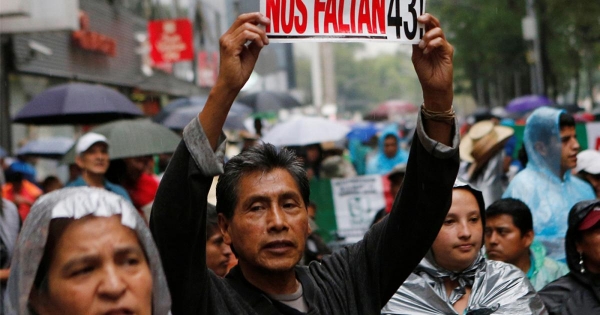When confrontations between armed groups within a state cause more than a thousand “battle-related deaths” per year, academics speak of “civil war.” At least since 2001, Mexico has surpassed this threshold. The war is not one but many. The so-called drug war entails various interacting “nonstate” conflicts, but it also contains elements of “one-sided” violence that criminals unleash against civilians, these predatory crimes are a fundamental part of cartels’ revenue. This dynamic is enabled by the lawlessness of some States, but it also finances organized criminal groups. This vicious cycle has one constant victim: civil population.
Especially in western and northern areas civilians are in the crossfire between the State and drug cartels. The recent and multiple re-organization of police and military apparatus combined with the strategy of decapitation conducted to a chaotic situation in which is everyday clearer that civilians are paying the highest price. Cartels are predating them, while state is not just omitting to intervene. Even ‘hugs not bullets’ policy is lacking resolution to promote an anti-mafia strategy that could strengthen civil justice.
While the number of ‘desaparecidos’ is increasing (official, but partial figures estimate it over 60,000), Obrador aims to strengthen military’s role in security, but serious violation of human rights committed by them are barely prosecuted. ‘Hugs’ have a cost that Mexico seems to be uncapable to hold, while even homicide rate is reaching new records.
In this lawless atmosphere drug cartels intensifies massacres and abductions, carrying on their predator strategy. Civil liberties are under a double threat, occasionally combined (remember 2014 kidnapping of trainee teachers). Civilians in Mexico needs international media attention and a shift in policy making to target the social root of this civil war. It’s not the time for State to shout, ‘politics of silence’ can be countered just by civil society’s voice.
If state abuse is not being recognized and prosecuted, as well as civil society is not being enforced by social policy, Obrador’s strategy has no future. In the meanwhile, civilians can’t afford to wait.
To learn more, please visit:
https://www.journalofdemocracy.org/articles/the-criminal-subversion-of-mexican-democracy/
https://www.nytimes.com/2010/10/29/world/americas/29mexico.html
https://www.theguardian.com/world/2020/jan/06/mexico-drug-war-missing-estimate
https://www.theguardian.com/world/2020/may/11/mexico-lopez-obrador-armed-forces-decree







